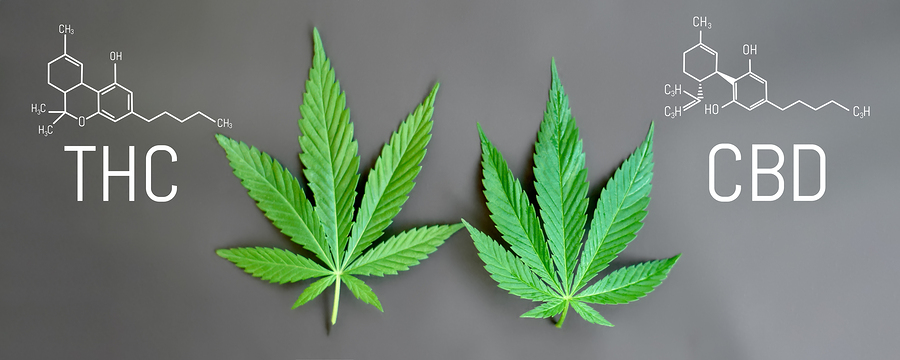What is the difference between CBD and THC?
As the discussion of legitimizing marijuana continues, the distinction between key mixes CBD and THC in cannabis is winding up progressively significant. The two of them have altogether different impacts and uses that extend from recreational to restoratively pivotal.
You may have known about cannabidiol oil, however, when discussing legitimate marijuana, it's critical to note key differences.
In spite of fluctuating open inclination on mariuana, these two separate mixes (CBD versus THC) have quite certain utilizations, most remarkably in the restorative circle. The backing of numerous medical experts has helped the compound CBD gather support for authorization and further research. Be that as it may, what is the distinction between the two?

What is the difference between CBD and THC?
The fundamental contrast between CBD (cannabidiol) and THC (tetrahydrocannabinol) is that CBD does not actuate a high though THC does.
Notwithstanding CBD and THC sharing a close definite sub-atomic recipe of C21H30O2, and sub-atomic mass of 314.469 g/mol and 314.464 g/mol individually, the mixes respond in an unexpected way.
THC, the psychoactive segment of cannabis, prompts rest or tiredness (a typical impact of most strains of pot), though CBD keeps you up and expands vitality. What's more, THC is in charge of the sentiment of being high or body-high.
While responding together, CBD really neutralizes the impacts of THC by decreasing nervousness, stress or other negative emotions. Hence, CBD is regularly extricated to utilize independently for non-psychoactive (and non-recreational) purposes.
What Is CBD?
CBD is just a solitary one of around 400 mixes in hemp, and is in charge of balancing the impacts of THC. Despite the fact that the CBD particle is practically indistinguishable to the THC atom, it does not result in a "high". All alone, CBD has been demonstrated to have numerous medical advantages and uses. The compound is non-psychoactive, which has helped it gain support in numerous restorative fields for its remedial properties.
Its advantages have been boosted by the retail and therapeutic markets, with CBD items including oils, vapes, edible items, skincare and beverages. Cannabinoid oil is a prevalent item made from CBD.
CBD has even been utilized for dogs. Items like canine treats and oils have turned out to be progressively famous as of late and are frequently prescribed by veterinarians.
What is THC?
THC, or tetrahydrocannabinol, is a psychoactive part of marijuana, in spite of the fact that the THC atom is like its non-psychoactive partner CBD. THC is the ingredient that is associated with the feeling of being "high", and therefore is to some degree less acknowledged for therapeutic use than CBD.
All things considered, THC boasts its own valuable employments. THC has properties that have been known to help treat some medical symptoms. Nonetheless, as a psychoactive intensifier, its therapeutic uses are as yet disputable.
Symptoms of THC
In high-focus THC, regular negative symptoms incorporate diminished psychological capacities, nervousness, suspicion, dry mouth, red eyes, torpidity and expanded craving. It's significant that the expanded hunger impact is frequently considered as a positive among chemotherapy patients enduring loss of craving, just as people experiencing a dietary issue.

